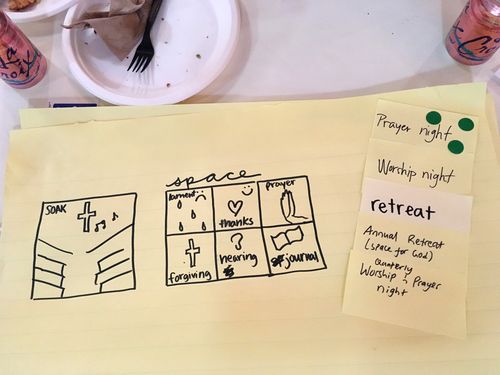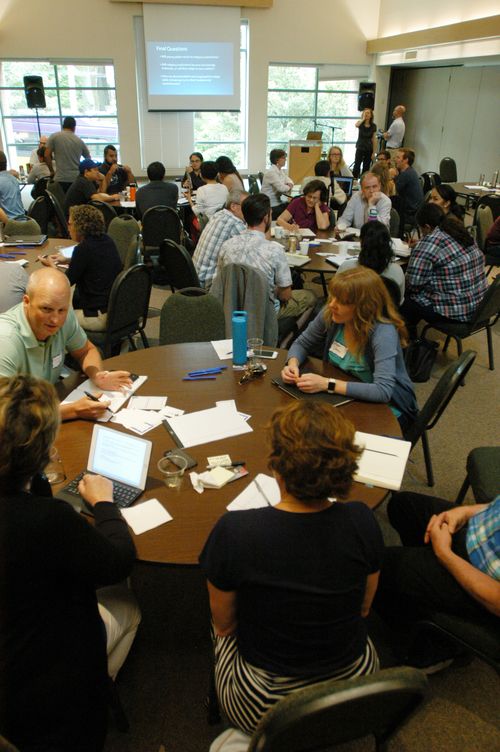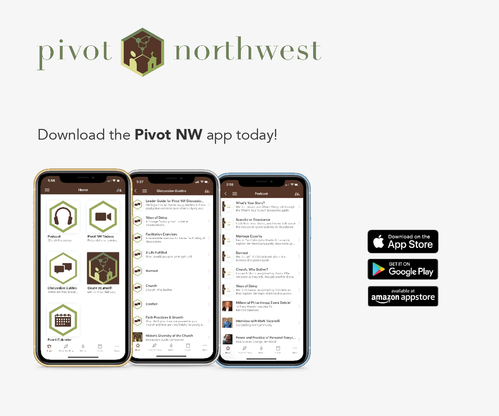Storytelling is the practice of sharing narratives, the cultural and social activity of celebrating diverse human experiences. Often, storytelling is a way to preserve culture, instill morals, teach lessons, and/or reveal truth to listeners. The Christian tradition is dependent on storytelling. Before God's story was preserved on paper, it was passed from generation to generation through oral tradition. We partnered with
Mark Yaconnelli of The Hearth, a community-based, story-telling initiative in Southern Oregon to learn more about storytelling as he understands it from a contemporary Christian perspective.
Here is a sermon he gave when he visited campus to lead us through some storytelling theory and practice work. Story chasing is the process of collecting the stories of people and events in our communities. These stories demonstrate who we are and how our community has been and is being formed. When you collect the stories of your own community, be careful to preserve the truth. For instance, when you read a story from one of your congregants, do not change anything. Edit for grammar, but do little else. If you are recording someone or receiving a recording, do not edit out the person's words, pieces of the story, or things that you deem to be irrelevant. One reason to have a story chaser is that some people in your community will tell a story that they may not realize is worth retelling, but a story chaser would identify such a tale because they are constantly on the hunt for new and interesting stories that can illustrate the aspirations and realities of the community. If this sounds like the work of a pastor, you wouldn't necessarily be wrong.
Janet Yellen says that “stories create a bridge from the abstract to the practical.” This is vitally true. Stories, and storytelling, are powerful tools to capture people's experiences. They give us facts that cannot be captured in formulas, graphs, or statistics. We each have stories to tell—about ourselves and how we relate to the world, each other, the Church, and other generations.
By compiling the stories of people in your community, you develop an honest perspective about who you are. Listening to the stories of people of different demographics (age, ethnicity, gender, etc.) and different levels of church involvement (pastors, occasional attendees, avid volunteers) will give you a robust picture of your church, who you were, and who you are becoming. For example, someone who has faithfully been attending for thirty years will have a very different perspective than a newcomer who is trying to decide whether your church is a good fit. Story chasing allows you to reflect on your church's past—both the struggles and successes—and to learn about the contemporary needs, desires, and hurts of people in your community through their own eyes.



